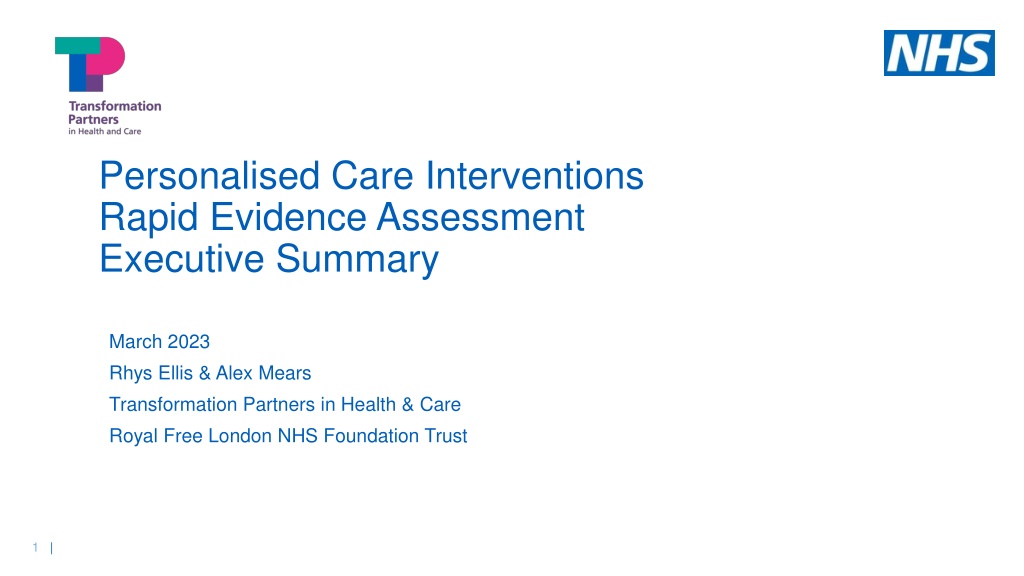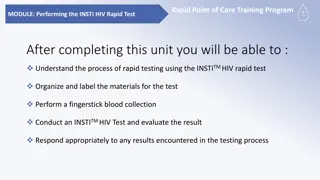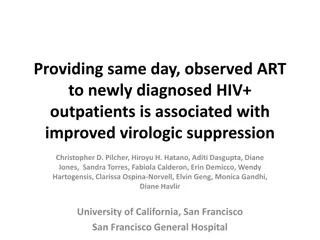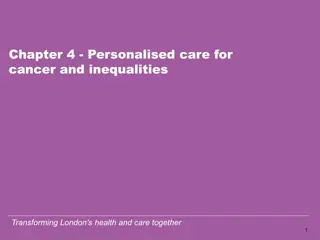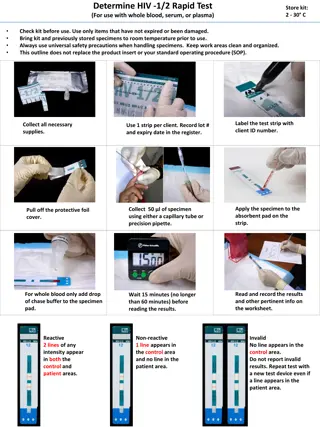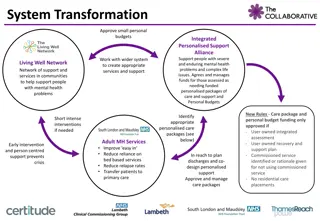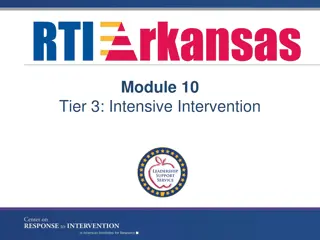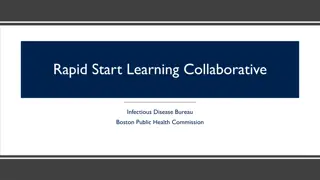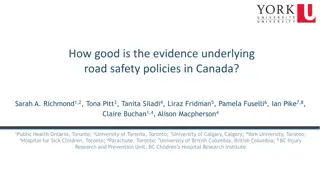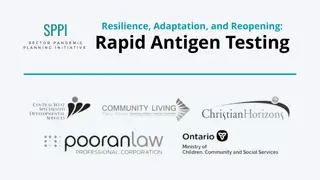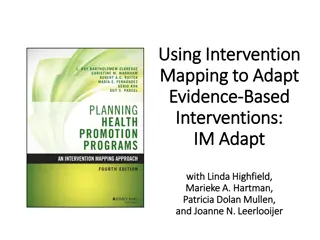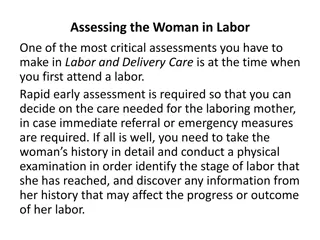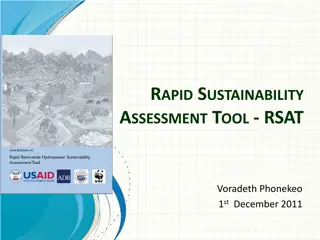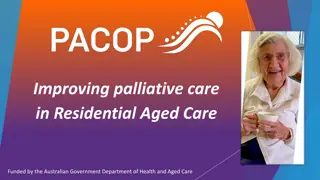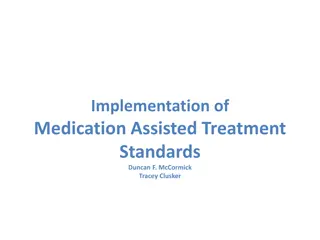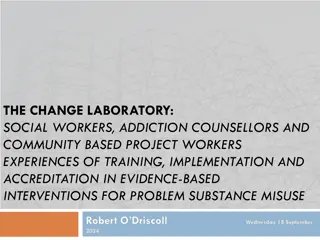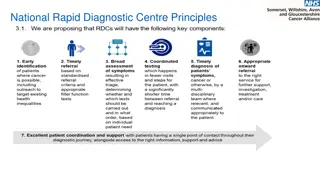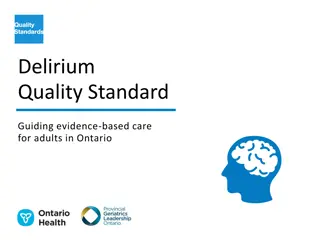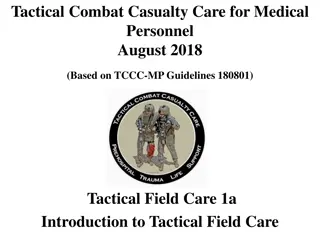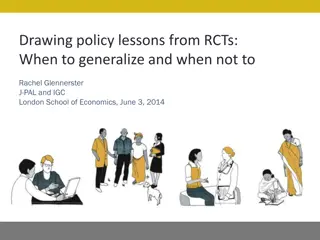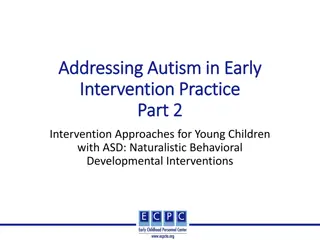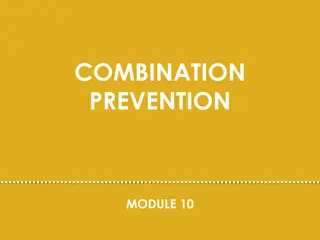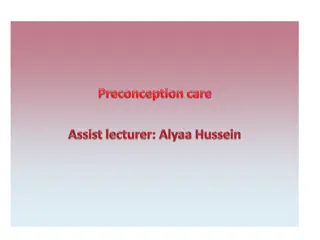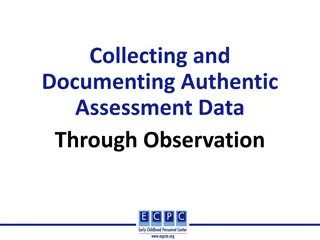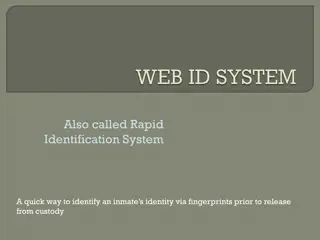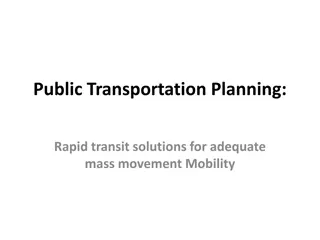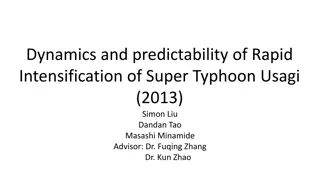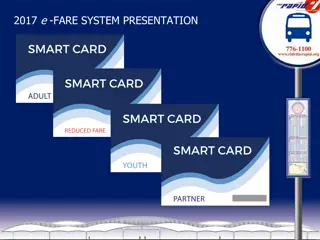Rapid Evidence Assessment on Personalised Care Interventions
Embedding personalised care into local health systems is a key aim, backed by a strong policy drive. A recent assessment by Transformation Partners in Health & Care at Royal Free London NHS Foundation Trust focused on key areas like Diabetes, MSK, and COPD. The study methodology involved a Rapid Evidence Assessment targeting health utilization, clinical outcomes, wellbeing, patient experience, and safety. Filtering through databases and screenings narrowed down relevant papers for further review.
Download Presentation

Please find below an Image/Link to download the presentation.
The content on the website is provided AS IS for your information and personal use only. It may not be sold, licensed, or shared on other websites without obtaining consent from the author. Download presentation by click this link. If you encounter any issues during the download, it is possible that the publisher has removed the file from their server.
E N D
Presentation Transcript
Personalised Care Interventions Rapid Evidence Assessment Executive Summary March 2023 Rhys Ellis & Alex Mears Transformation Partners in Health & Care Royal Free London NHS Foundation Trust 1 |
Background Aim: to embed personalised, person- centred care into all local health systems Evidence for the effectiveness of PC has been sporadic, and piecemeal Personalised Care is a key policy for the NHS, and part of the LTP Transformation Partnership in Health & Care (Royal Free London NHS FT) undertook this commission Current need for a review of the evidence, to support planning and policy-making Commission from the Evidence Task & Finish Group to undertake such a review for fast delivery 2
The Brief Establish 3 key high impact areas where felt personalised care has 1. A strong evidence base 2. A key role in improving health and care 3. Aligned to a high priority area for the NHS 4. Can demonstrate high impact to current priorities Conduct and produce literature review of the evidence in these key areas. Develop resource/products for each high impact area that can be used to influence decision making where personalised care makes its greatest impact. These areas are to be Diabetes, MSK and acute respiratory disease (COPD). 3
Methodology PICO tool produced this Research Question: In those with MSK, diabetes or respiratory disease (P), what has been the effect of Personalised Care [as defined by the universal model of personalised care] (I) on health utilisation, clinical outcomes, wellbeing outcomes, patient experience & safety (O)? Full Systematic Review beyond budget and timescale, so Rapid Evidence Assessment selected as methodology, with broadly qualitative approach using narrative synthesis Papers under review were limited to Systematic Reviews and Meta-analyses to limit numbers Search strings developed with input from SMEs, using wildcards and Boolean operators On academic advice, we limited our search to Embase, Medline and the Cochrane Library 4
Screening Stage 1: Search the databases Stage 2: Initial screening (relevance scoring) Papers found: Diabetes = 407 MSK = 304 COPD = 129 Scored for relevance Papers left: Diabetes = 258 MSK = 155 COPD = 95 Stage 3: Longlisting (algorithmic search of abstracts) Stage 4: shortlisting Abstracts scanned for relevance Papers left: Diabetes = 19 MSK = 15 COPD = 5 Excel algorithm to identify relevant keywords within abstract Papers left: Diabetes = 33 MSK = 19 COPD = 13 5
Review quality AMSTAR2 (A Measurement Tool to Assess Systematic Reviews) was deployed to assess the quality of the reviews shortlisted Among other factors, it assesses research questions and inclusion criteria establishment of review methods study selection and data extraction procedures risk of bias assessment data synthesis publication bias investigation Scores were weighted, summed and a mean taken to provide comparability Scores for the reviewed papers: Condition area Critically low Low Moderate High Adjusted score Diabetes 0 4 7 8 3.21 All scores are acceptable, COPD the best of the three conditions MSK 2 0 3 4 3 COPD 0 0 0 5 4 6
Headlines: Impact of PC interventions can be seen in 5 areas Patient expertise in managing their condition. This includes understanding of their condition, greater efficacy in management, and empowerment General health, both physical and mental. The review of NICE Guidelines strongly supported this theme. Clinical. Measured using standard clinical outcomes. Evidence varies in strength. System. Clear evidence that PC interventions reduce hospital admissions, at least for COPD and diabetes. Quality of life/ wellbeing. Factors beyond health that improve the patient s quality of life.
Synthesis: diabetes telehealth (ie web-based programmes, interactive digital interventions, wearables) can reduce hospital admissions by 4.1% and decrease BP by 3.74 mmHg (SBP) and 2.37 mmHg (DBP), approximately 3% and 3.4% respectively mobile phone-based intervention showed significant improvement in HbA1c levels wearable insoles reduced diabetic foot ulcer occurrence by 86% education-based (ie cognitive reframing, behaviour change) patient education showed a statistically significant reduction in fasting blood glucose, and HbA1c patient empowerment reduced glycated haemoglobin and increased diabetes empowerment and knowledge scores decision/ peer support (ie trained peer education, social media-based interventions) pooled mean difference of 0.57% for HbA1c interactive digital interventions show reduced SBP and better self-efficacy patient education programmes produced a reduction in HbA1c 8
Synthesis: MSK includes pedometers, smartwatches and intelligent insoles evidence mixed save for Omron pedometer, which was associated with improved functional capacity in inflammatory arthritis wearables improved knowledge (p<0.0001) better understanding of personalised risk (p<0.0001) less decisional conflict and more empowerment from clinicians decision-support tools reduced school absenteeism by 29% reduction of pain intensity by 17.3% fitbit increased walking by 183.1 min/week telehealth better pain management and less catastrophising (SMD (standardised mean difference) 20.42, 95% CI) mean VAS (visual analogue score) for pain showed a reduction of 0.8 points self-management education boosters with physical and psychological therapies showed a pain reduction of 5.7% better than health education by 0.17 SDs (standard deviations) digital-based SSM 9
Synthesis: COPD health coaching reduction in hospital admissions (OR 0.46, p<0.0001) blended SSM (electronic & f2f) less frequent exacerbation (RR 0.38) reduction in BMI (mean difference 0.81) improved QoL (SMD = 0.81) nutritional support increases in protein intake (p<0.001) other SSM including education smoking cessation, exercise, exacerbation action plan etc lower risk of A&E attendance (HR (Hazard Ratio) -0.52 mean difference of 45.14m in walking test 2.86 lower score on St. George s Respiratory Questionnaire improved QoL scores 10
Discussion: Findings v areas from the original brief: A strong evidence base system pressures: supported for COPD, less for diabetes, not for MSK support for healthcare impact for all conditions via indirect routes strong clinical outcomes for diabetes varies by condition area A key role in improving healthcare improvement via understanding, support, empowerment, feeling in control many positive outcomes for all conditions Aligned to a high priority area for the NHS argument for deep dive and further research not really aligned with policy priorities High impact to current priorities SSM can reduce hospital admissions for COPD and diabetes 11
Conclusions and recommendations More research is required to understand more about the other components of PC and their impact, as well as more exploration of how the indirect impacts might reduce utilisation in the longer term In some forms for some conditions, the evidence supports the assertion that PC leads to lower healthcare utilisation. The evidence is strongest for SSM in COPD. Deep dive analyses would be instructive to identify areas of variation and relationships of PC interventions to deprivation and other wider determinants of health There is cross-condition support for the positive impact that PC has on patient health, wellbeing and clinical outcomes More evidence is required to explore the person-centric impact of PC, not just one of the components or its interventions in isolation of the others More information is needed about the impact of PC interventions on utilisation in primary care An evidence review could look at co-morbid patients, and the impact that PC interventions have for them Exploration may be constructive around the impact on staff 12
